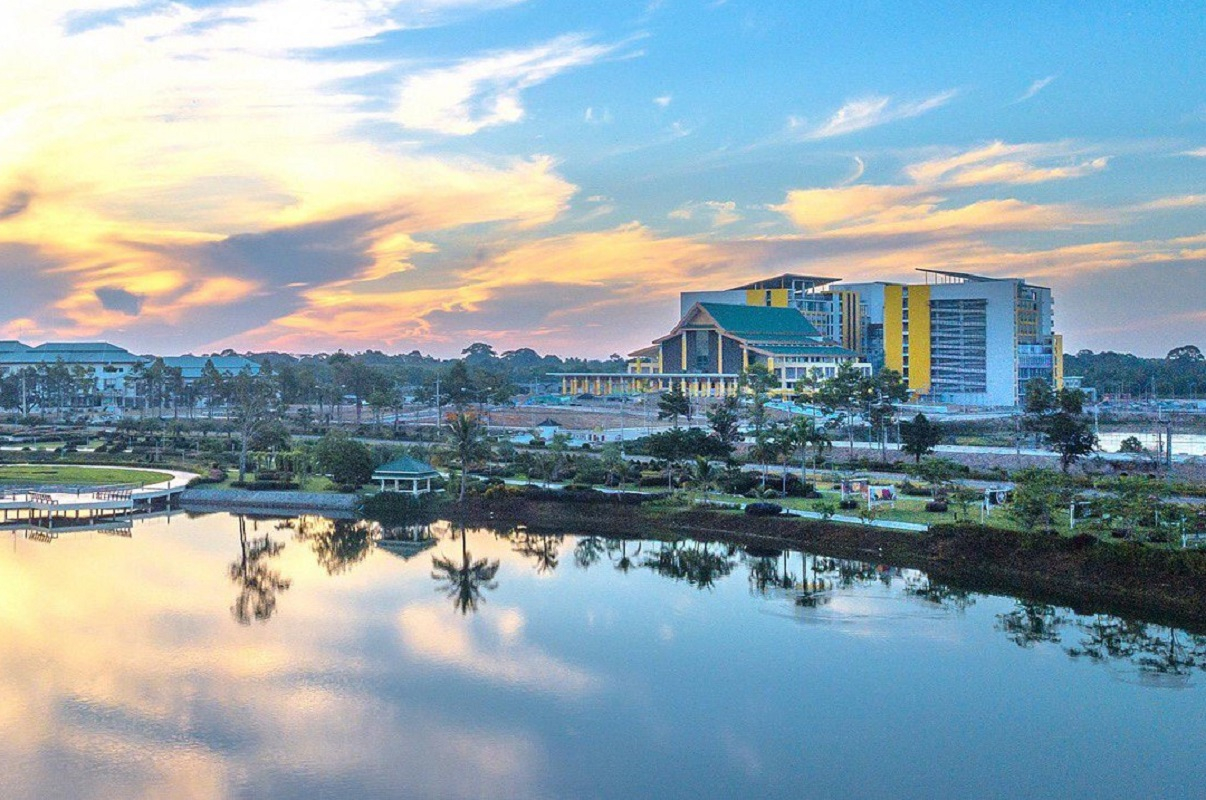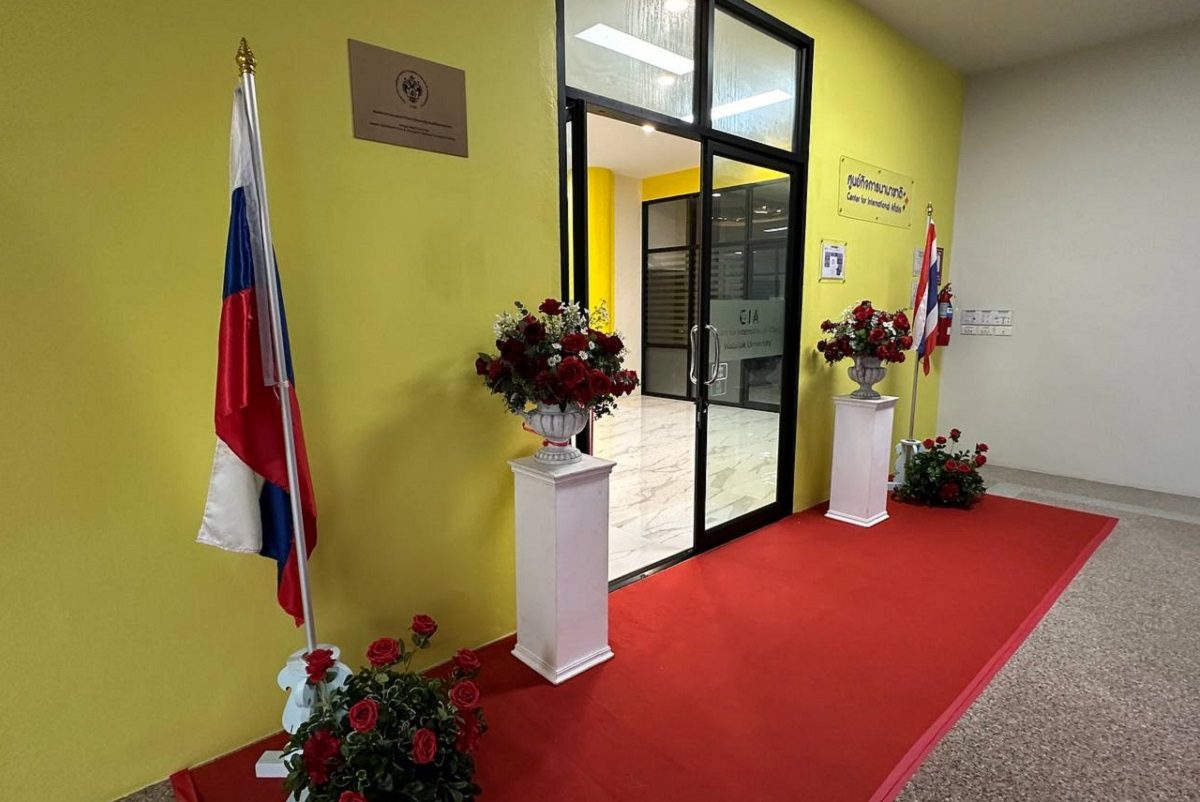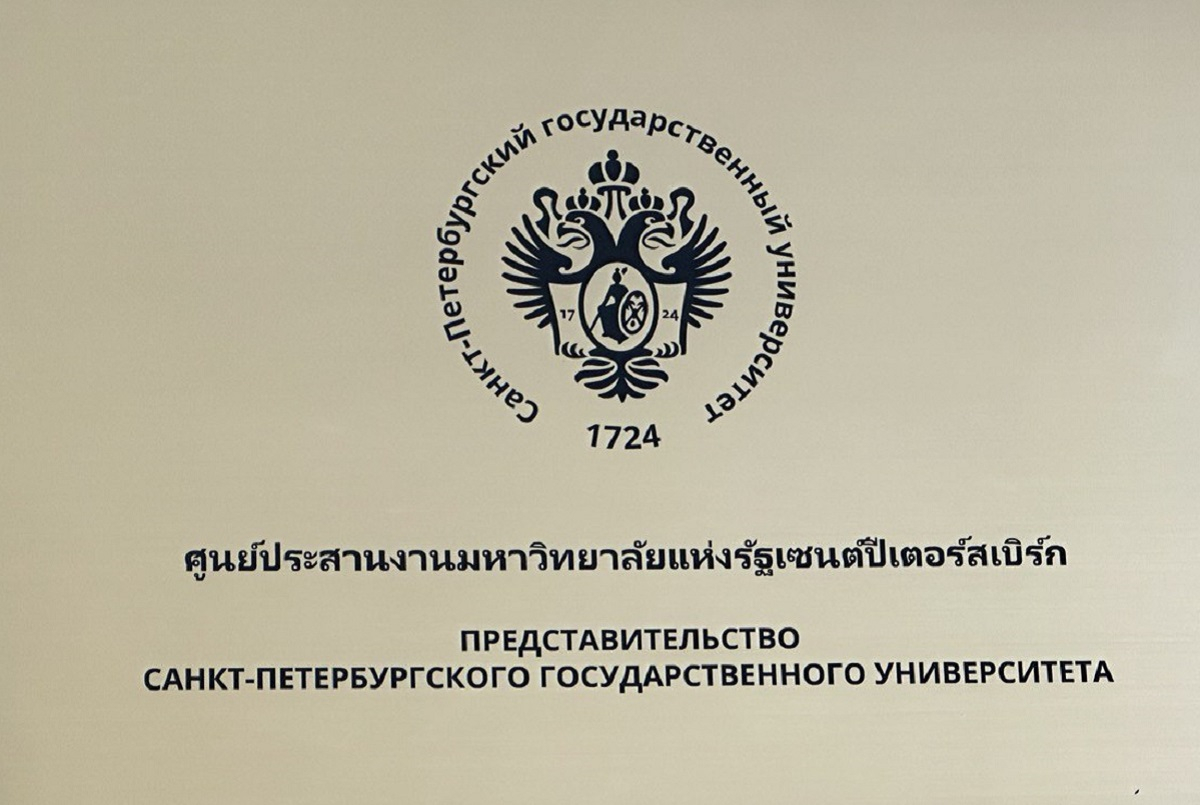SPbU Representative Office opened in Thailand
St Petersburg University has opened a Representative Office at Walailak University. The ceremony was attended by the Rector of St Petersburg University, Corresponding Member of the Russian Academy of Sciences, Nikolay Kropachev, and the President of Walailak University, Professor Sombat Thamrongthanyawong.
St Petersburg University has been implementing the SPbU Representative Offices programme for many years as part of its international cooperation. Today the University has representative offices in Korea, the People’s Republic of China, Spain, Greece, Italy, Iran, Moldova and the Republic of Belarus. In addition, SPbU recently became the first Russian university to open its own representative office in the Navoi Free Economic Zone (Republic of Uzbekistan).
The new Representative Office at Walailak University in the Kingdom of Thailand will host joint research and educational projects, conferences, seminars, public lectures by renowned Russian scientists and public figures, and events aimed at promoting the Russian language, history and culture.
It is a great honour for us to open the SPbU office in Thailand this year, as Russia and Thailand will celebrate 125 years of diplomatic relations in 2023.
Nikolay Kropachev, Rector of SPbU, Corresponding Member of the Russian Academy of Sciences
‘Over the years we have been developing our academic relations with Thai universities. SPbU has been visited many times by members of the royal family, who have received honorary doctorates from St Petersburg University. The development of international relations with Eastern countries is one of the priority areas for SPbU. The jewel of our long-standing cooperation with Thailand is the opening in 2012 of the first Thai Room in Russia — it is a Thai-style classroom available for SPbU students and faculty, for holding academic lectures, as well as for organising cultural and academic events of the university’, noted Nikolay Kropachev in the video message.
Today SPbU has more than 5000 international students, including students from Thailand. The university runs more than 15 educational programmes with a «Thai component» in which students study the history of the Kingdom of Thailand, Thai language and Thai culture. Among more than 120 languages taught at the University within the framework of Asian and African studies, Thai holds a special place. Its teaching is supported by the Embassy and Consulate General of the Kingdom of Thailand. SPbU also hosts regular events with Thai researchers and meetings with diplomats. Last year, for example, Nattanop Palahan, a national of the Kingdom of Thailand, defended his PhD thesis at SPbU.
According to SPbU Rector Nikolay Kropachev, in September 2024, Russia’s first university plans to launch a new educational programme ‘Organisation of Tourism Activities (with in-depth study of Thai language)’, which will train future tourism specialists with in-depth knowledge of Thai culture and Thai language. Medicine is also a promising area of cooperation.
The medical field is of scientific interest to professors and students of both universities. SPbU is ready to start training students in Thai medicine — we see this direction as beneficial for the development of economic relations between Russia and Thailand.
Nikolay Kropachev, Rector of SPbU, Corresponding Member of the Russian Academy of Sciences
‘We are also ready to send our students and professors to Thailand, and host students and professors from Walailak University in order to implement protocols of student and academic exchange,’ added Nikolay Kropachev. The ceremony was also attended by a delegation from St Petersburg University, as well as staff and students from Walailak University, including those from Russia. At the end of the ceremony, Sergey Andryushin, SPbU Vice-Rector for International Affairs, gave a lecture to the students and staff of Walailak University on the development of the Russian Federation’s foreign policy. He spoke about Russia’s international activities in the current geopolitical environment and prospects for further development.




